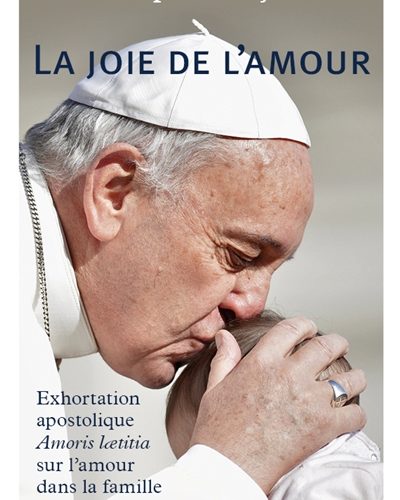Amoris Laetitia – Second Chapter
The second chapter of Amoris Laetitia is dedicated to observing the reality of marriage and the family in society and the Church; the environment, globally, faces “human and moral failings.” (AL 35) With much lucidity and a sense of reality, Pope Francis denounces the “cultural decline,” the most obvious symptoms of which are omnipresent in today’s society, “a culture of the ephemeral.” The unity and indissolubility of marriage that the Church recognises and defends, seems strange to many. They do not feel that the Church’s message on marriage and the family reflects the preaching and attitudes of Jesus, who set forth a demanding ideal, and yet never failed to show compassion and closeness to the frailty of individuals. (AL 38) In this sense, the Pope draws attention to a few challenges in terms of the dedication and concern that need to be shown to people with special needs (AL 47), the elderly and infirm, whose numbers are ever growing today even as the birth rate declines, and this puts the necessary renewal of society in peril, as does euthanasia and assisted suicide (AL 48).
If Christians waver in their faith, the world gets colder and dies of cold, deprived of the values that only Christians, animated by the Spirit of the Lord, can offer it; this can be verified in the current crisis provoked by, amongst other causes, a certain idealisation of marriage and love (AL 36) and by an “extreme individualism, (…) leading in some cases to the idea that one’s personality is shaped by his or her desires, which are considered absolute.” The family cannot be seen as a way station (AL 34) and marriage on which the family is founded, ought to be seen as “a dynamic path to personal development and fulfilment” and not as a “lifelong burden.” (AL 37)
Here are some problems and challenges that the Church and every Christian face: the mystery of the Gospel of marriage and the family must be seriously taken into account, for it is inseparable from the mystery of the cross, the glorious cross that the Lord carried on his shoulders along the road to Calvary. The cross He carried is the cross of each one of us; this cross born by the Lord and with Him is a sign of salvation. With Christian couples and families, the Church has been sent out on mission to bear witness to the crucified love, source of peace and hope for the world: “The family is a good which society cannot do without, and it ought to be protected.” (AL 44) This is the profound preoccupation behind Amoris Laetitia, that insists more on the presentation of the beauty of love than on the sombre aspects of the crisis. This is why the only purpose of this chapter is to draw attention to it; its intention is to mark the transition with the Canticle of love, following in the steps of St Paul.
Father José Jacinto Ferreira de Farias, scj
Spiritual Counsellor to the ERI

























